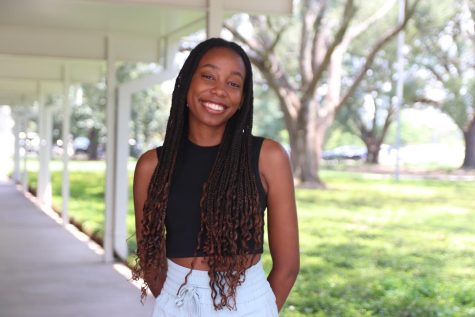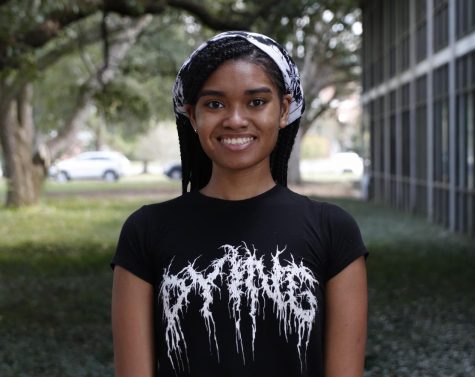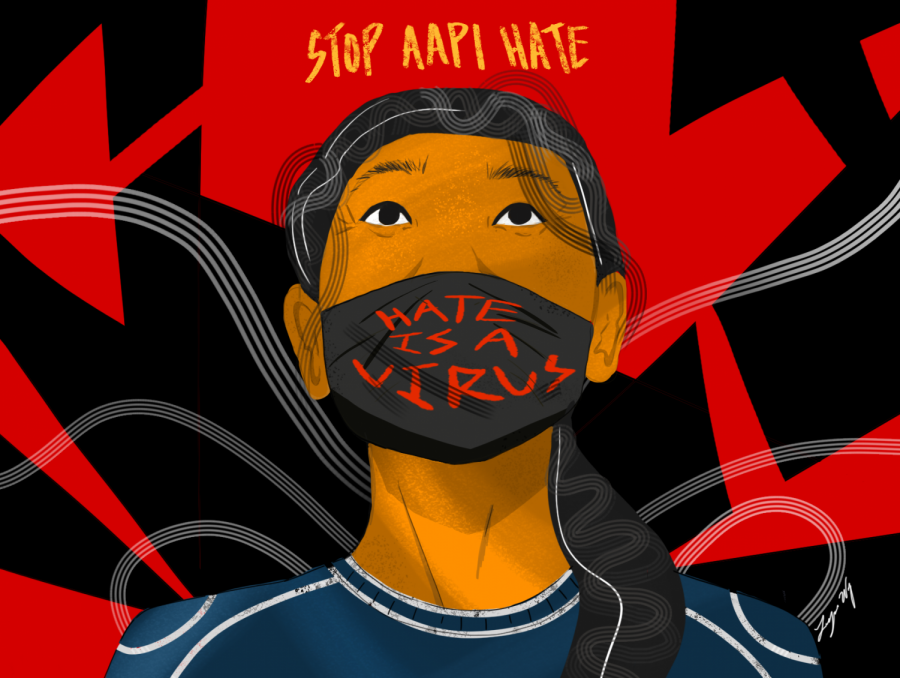Humanize their stories: Asian grievances matter
On March 16, a gunman’s rampage resulted in eight people’s deaths across three different spa locations in metro Atlanta.
Six of the victims were women of Asian descent, leading many people to believe the attacks are linked to the global rise of anti-Asian hate crimes. While the evidence does not currently conclude the attacks were racially motivated, this tragedy’s impact is undeniable. Asian Americans are concerned; they have every right to be.
As I see headlines such as “Anti-Asian racism is leftist media’s latest lie” surface, one thing becomes abundantly clear to me: far too often, we overlook and over-politicize the grievances of Asian Americans.
The media tends to turn human suffering into a political sparring match, but we must not forget these incidents involve real people. Behind every statistic and breaking news story, there are real people whose lives are impacted by the rising chaos.
One of these people happens to be someone very close to me; her name is Jing “Annie” Wang.
Annie and her family immigrated to the United States when she was four years old. We met in high school, and not only is she my best friend, but she is the most resilient person I have ever known.
Ever since Annie moved to New York for college, we’ve had some interesting phone calls.
“My parents fear that maybe I’ll be the next target because you just never know. You could walk into the city just doing your usual stuff, and all of a sudden you could get attacked or be called all these names and labels. It’s always in the back of your mind because you really never know,” she said.
According to a report by Stop AAPI (Asian American Pacific Islander) Hate, 68% of 3,795 incidents reported to the center in the past year were incidents of verbal harassment.
Annie revealed to me that she is no stranger to unwarranted comments on her ethnicity.
She said, “When we were back in high school, I was definitely made fun of more than I talked about. They would jokingly say ‘you’re Chinese, you eat dogs and cats,’ and they would comment about my appearance a lot. [A former classmate] would comment on my squinty eyes. They premised things by saying ‘not to be racist,’ but it was definitely racist. There’s so many things a lot of people said.”
My friend Sori Lim, an exchange student from South Korea, also became the victim of verbal harassment.
While shopping at the Target in Hammond Square, Sori encountered racially-charged harassment for the first time.
“Last year, when COVID first started, there was a guy around 60 years old who stopped when he saw me and kept saying ‘China’ to me. It feels terrible because first of all, I’m from South Korea, and second, it makes the rest of my day so bad. It’s overwhelming sometimes,” she said.
My friends’ experiences might not seem like a big deal to some people, and that is probably because we have become so desensitized to racism against the Asian community. The more we normalize stereotypes against Asian Americans, the more vulnerable they become to racially-charged crimes.
Every crime may not be racially charged, but if Asian Americans say they are experiencing an increased threat to their safety, who are we to minimize their grievances?
The victims who lost their lives in Atlanta were: Delaina Ashley Yaun, 33; Xiaojie Tan, 49; Daoyou Fen. 44; Paul Andre Michels, 54; Hyun Jung Grant, 51; Soon Chung Park, 73; Suncha Kim, 69; and Yong Ae Yue, 63.
Before we brush these tragedies under the rug of a political agenda, let’s remember these are real people with horrified families. It’s time to stop belittling their suffering. Humanize their stories, and stop Asian hate.
Your donation will support The Lion's Roar student journalists at Southeastern Louisiana University.
In addition, your contribution will allow us to cover our annual website hosting costs.
No gift is too small.

Symiah Dorsey is a communication major from Laplace and serves as Editor-in-Chief. Raised in Europe, Symiah is an avid lover of languages, traveling and...

Lojuanda Weary is a biological sciences major with a concentration in integrative biology. She is the cartoonist for The Lion's Roar and occasionally draws...







